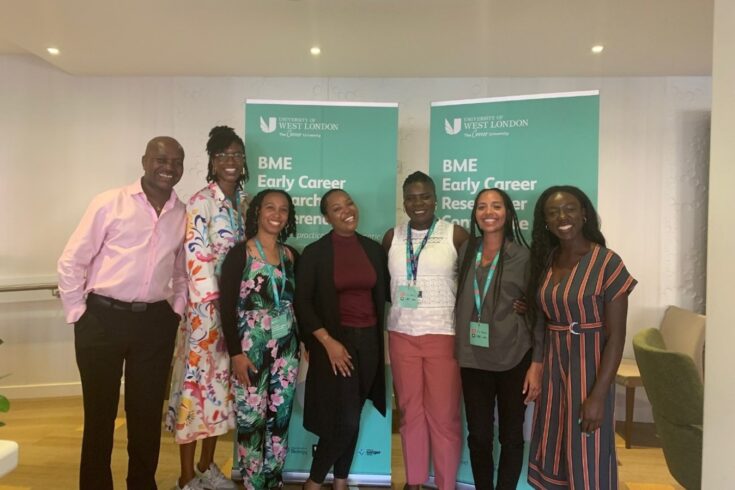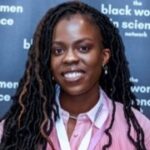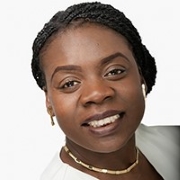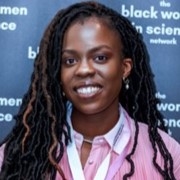We think visibility is a primary factor that contributes towards the underrepresentation of Black scientists across the biomedical sciences. Going back as far as in secondary school, we didn’t see people who represented us in these fields, sometimes even within our own families.
A lack of access to understanding what such a career entails can also contribute to a lower retainment of Black students in these subjects. Because why would you want to study something that you don’t exist in or doesn’t factor you in?
Even if you get through university under these subjects, you may not know how to apply for or get these jobs. Because who you know impacts how the positions are open or available to us.
Not seeing people who look like you in these spaces as researchers, project leads, committee members or grant reviewers can be disheartening even if not shocking. And we have to assume that if they’re not there, they’re not researching diseases that affect minority ethnic groups either.
How to overcome the challenges of underrepresentation
The Black in Biomedical Research project came about in response to the sustained underrepresentation of Black researchers across the Medical Research Council (MRC) and the biomedical sciences.
The project aims to overcome the challenges of underrepresentation by listening to what Black scientists are saying. We are co-Chair and Deputy Chair of the Black in Biomedical Research Advisory Group (BBRAG). This group is shaping, influencing, and guiding the delivery of the project. The project itself came about due to Sarah Goler-Solecki, MRC’s Equality, Diversity and Inclusion Engagement and Change Manager, listening to us.
And not just having a listening ear, but acting and involving us from the very beginning. Usually, members of an advisory board are brought into the fold once the funding has been agreed, and then we advise how to spend it. With this project, we were brought in before there was even guaranteed money (£3.7 million between 2023 to 2025). We were asked: “What do we think is important, what do we want to do, what would we want money for, and how much would we need?”. So, this project is going to be guided by representatives of the people it will impact.
The value of diverse views and experience
We acknowledged in the advisory group the diversity that comes even within Black scientists and the importance of having diverse views and experience. The advisory group includes PhD students and not just senior researchers, because it is important to be open and understanding to what all Black researchers want to achieve.
We were also very intentional about not having the group be all from Oxbridge. It is important that we don’t start gatekeeping only for the Black scientists at a certain type of institution. It’s very much a case of taking people based on their experience, knowledge and their own personal accomplishments, regardless of what institution they have underneath their name. This is important as it removes the idea that we are a monolith.
Achieving impactful change
As members of BBRAG we hope to make sure that our lived experiences do not repeat themselves. People will know where to apply for funding and who is going to support them. They will know that MRC is in support of what they’re doing.
We have resources specifically for Black biomedical researchers in several areas including internships and fellowships. So those applying for future opportunities have a chance to research something that’s close to their heart, for example the inherited blood cell disorder of sickle cell disease. This is a condition most commonly seen in people of African and Caribbean backgrounds.
But it’s not just about the money and resource. It’s about shaking the table a little bit and making sure people know that we need a whole new approach for impactful change to happen. MRC has huge influence in the science space and they can move differently in the hope that others will follow suit. We hope to continue to be part of that change and not just within MRC.
Hope for a visible future
We’re already seeing more visibility from the existence of different groups like BBRAG, the Black Women in Science Network and Black in Cancer. Being exposed to all these organisations is giving young people hope and we’re hearing the narrative start to change. They will not say, “Oh, I don’t know a Black person working in a research lab” anymore.
It’s exciting to make a difference and know that in generations to come, the impact that we’ve had in our communities will still stand. Even if it’s just one Black researcher that stays in the game, it could change a person’s life. The impact that research has on healthcare and people’s lives is exponential. By ensuring a diverse input, the output is going to help diverse communities.
We have so much hope for this project and the future as it’s giving us the space to do what we want to do. MRC is not dictating to us, rather we’re telling MRC what we would like and it’s working. This is an effective group who are united and are doing things that we thought would never be possible in our lifetime.
A message to those starting their journey: believe in your dreams, be confident and ask questions. It doesn’t matter how you think you may sound, at least you’re asking. Be okay with not always having the answer. Find the people who are going to help and ask for help. Ask for support, find a mentor, find that community and enjoy the journey.






